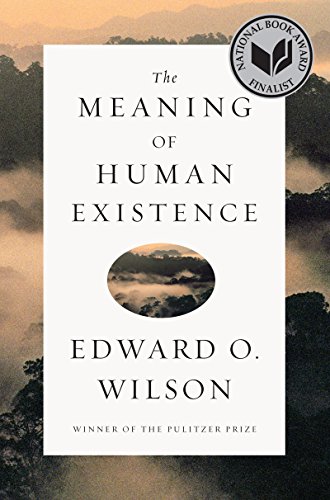
The Meaning of Human Existence
کتاب های مرتبط
- اطلاعات
- نقد و بررسی
- دیدگاه کاربران
نقد و بررسی

June 30, 2014
In his typically elegant style, two-time Pulitzer Prize–winner Wilson (Letters to a Young Scientist) cannily and candidly probes the nature of human existence. Wilson ranges from natural selection and eusociality to extraterrestrial life and the “all-importance of the humanities,” observing that the “origin of the human condition is best explained by the natural selection for social interaction.” He explores the conundrum of nature versus culture, pointing out that the two levels of natural selection—individual and group—always oppose each other. Human nature, he argues, is the “ensemble of hereditary regularities in mental development that bias cultural evolution in one direction as opposed to others and thus connect genes to culture in the brain of every person.” According to Wilson, “human existence may be simpler than we thought. There is no predestination, no unfathomed mystery of life... we are self-made, independent, alone, and fragile, a biological species adapted to live in a biological world.” Given this freedom to recognize our relationship to nature and to act accordingly, Wilson pleads that we show tolerance to our fellow humans and mercy to the world around us: “We alone among all species have grasped the reality of the living world.... We alone have measured the quality of mercy among our own kind. Might we now extend the same concern to the living world that gave us birth?”

October 1, 2014
Wilson (Pelligrino University Professor Emeritus, Harvard Univ.; The Social Conquest of Earth), who is perhaps best recognized as the "father of sociobiology" as well as the world's leading expert on myrmecology, here asks the question that is the logical extension of his life's work: What does it mean to be human? Humans have evolved to instinctively surrender some individuality to the survival of the group, placing them among the rare eusocial species. Wilson has spent considerable energy in past writings defending the theory of group selection over kin selection, and does so again here, emphasizing throughout the book that while individual selfishness in human evolution benefits individuals, altruistic groups have better benefited survival, giving rise to social virtues and cooperation. Wilson also promotes here, as he has in the past, a "new enlightenment" with the goal of progressing toward an intellectual continuum between the hard sciences and the humanities. VERDICT The importance of preserving the biodiversity that gave rise to humanity matters to Wilson, a point he emphasizes by cautioning us against engineering the planet exclusively to serve human needs, a gloomy dystopia he refers to as the "Age of Loneliness." This book will be of interest to the general reader.--Jeffrey J. Dickens, Southern Connecticut State Univ.
Copyright 2014 Library Journal, LLC Used with permission.

























دیدگاه کاربران